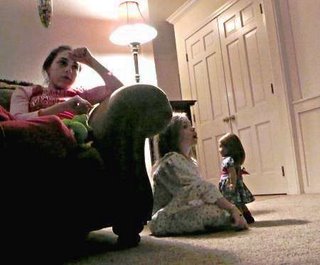Pseudo-Kantianism
The chief problem with modern "Kantians" like Korsgaard is that they don't notice the problems that Kant raised but couldn't resolve. Few of us are comfortable with Kant's insistence that morality is a matter of acting according to law, not according to inclination, but Kant had serious reasons for keeping these two so far apart; he had no other way to justify the freedom of the will. If our acts are motivated or even affected by our emotional states, they are implicated in the same system of causality that pervades the phenomenal world, and we've launched ourselves down the slippery slope towards determinism. Human freedom vanishes; we're no more "free" than cockroaches.
But Kant's solution has its own problems, as George Di Giovanni sets out in his tough but brilliant book Freedom and Religion in Kant and His Immediate Successors: The Vocation of Humankind, 1774-1800 (Cambridge UP, 2005, a whopping $75.00). If freedom exists in the intelligible realm that Kant has carved out, how is it effective in the phenomenal one? Or, as Robert Pippin, Terry Pinkard, and others put it, how can "the interest of reason" motivate an action if it isn't a phenomenon itself? And if, as Kant states, the separations between the intelligible world and the physical world and between freedom and necessity are resolved in God, doesn't this mean that freedom is an illusion, that we seem free only because we lack the complete understanding of the divine?
The sad thing about modern Kantians is that they use Kant as an authority instead of taking his project seriously. They preserve his distinctions but avoid their implications, as if the extraordinary creativity of the post-Kantian idealists had been some kind of mass delusion.
In fact, the idealists were right about Kant; he tried to secure a leading role for philosophy, but ended up showing that no rational elucidation of experience was possible. It's today's scholars who peddle a delusion--the delusion that he got it right, and that our pseudo-Kantian universe of autonomous beings in an objective world is something other than an odd cultural artifact.
But Kant's solution has its own problems, as George Di Giovanni sets out in his tough but brilliant book Freedom and Religion in Kant and His Immediate Successors: The Vocation of Humankind, 1774-1800 (Cambridge UP, 2005, a whopping $75.00). If freedom exists in the intelligible realm that Kant has carved out, how is it effective in the phenomenal one? Or, as Robert Pippin, Terry Pinkard, and others put it, how can "the interest of reason" motivate an action if it isn't a phenomenon itself? And if, as Kant states, the separations between the intelligible world and the physical world and between freedom and necessity are resolved in God, doesn't this mean that freedom is an illusion, that we seem free only because we lack the complete understanding of the divine?
The sad thing about modern Kantians is that they use Kant as an authority instead of taking his project seriously. They preserve his distinctions but avoid their implications, as if the extraordinary creativity of the post-Kantian idealists had been some kind of mass delusion.
In fact, the idealists were right about Kant; he tried to secure a leading role for philosophy, but ended up showing that no rational elucidation of experience was possible. It's today's scholars who peddle a delusion--the delusion that he got it right, and that our pseudo-Kantian universe of autonomous beings in an objective world is something other than an odd cultural artifact.

